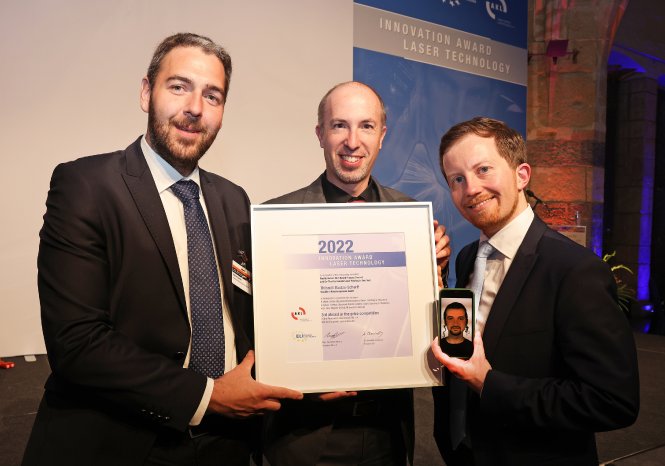Remote laser welding with scanners is widespread in the automotive industry, but due to the large scanning fields and highly dynamic directional changes of robots, it has for a long time not been possible to provide precise seam tracking and inspection for welded seams. This is why back in 2014 Blackbird introduced a coaxial, camera-based seam tracking system for on-the-fly laser welding. Since 2015, it has been working on implementing optical coherence tomography (OCT) as a universal tool for pre-, in- and post-process tasks in laser processing with galvanometer scanners. Now, finally, the joint development can prove its full potential.
Demanding laser processes in its sights
Through the unique combination of a main scan system with on-the-fly functionality, a separate OCT scanner with four axes and an OCT sensor, an intelligent tool with integrated process monitoring was created. The thirteen recorded axis positions are combined with the measured OCT distance values in order to spatially depict the OCT measured value. This means that the workpiece edge can be identified, the height profile of thelaser processed workpiece can be analyzed and control signals can be sent to the processing scanning head. Thanks to the development of an Open Interface Extension (OIE), all types of sensors can now also be synchronized with the scan system. The overall solution can be controlled via a joint user interface.
Martin Zeitler, Head of Technical Development at Blackbird, summarizes the results as follows: "The feedback from trial customers is amazing and stresses the need for a universal, high-performance process monitoring system for various laser processes. Typical application areas include remote laser welding such as safety-related joining applications in automotive production (doors and seat structures and other components of electric vehicles). Thanks to the Open Interface approach, in the future further scanner-based laser applications such as 3D printing can also benefit from the integration." Continuous monitoring is needed in the area of additive manufacturing, in which production times of up to several days or even weeks are experienced, in order to respond to possible errors in good time and to adapt process parameters accordingly.
After the unexpected break as a consequence of the coronavirus pandemic, on the evening of May 4th, the winners of the Innovation Award Laser Technology for 2020 and 2022 were revealed at the AKL Congress. The project team from Blackbird and SCANLAB achieved third place with their solution for 2022. The award was presented by AKL Arbeitskreis Lasertechnik e.V. and the ELI (European Laser Institute) after assessment by a jury of experts.


